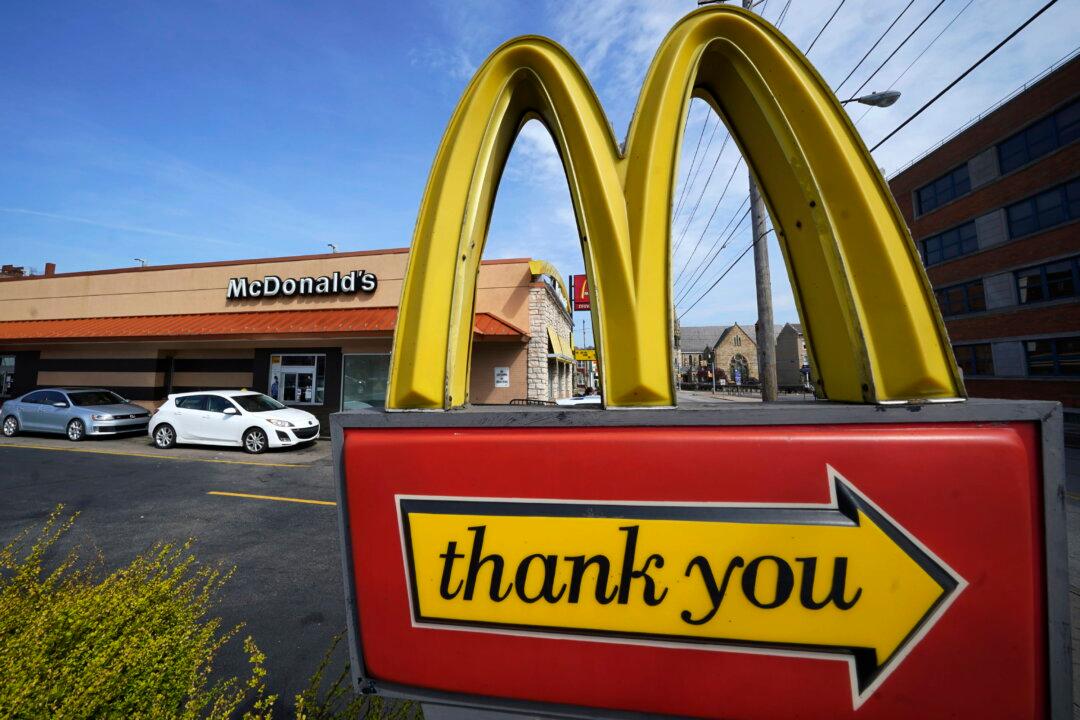McDonald’s revenue fell short of expectations in the second quarter as coronavirus restrictions shuttered stores in China and higher prices took a toll on U.S. demand.
The Chicago burger giant said its revenue fell 3 percent to $5.72 billion in the April–June period. That was short of Wall Street’s forecast of $5.8 billion, according to analysts polled by FactSet.





